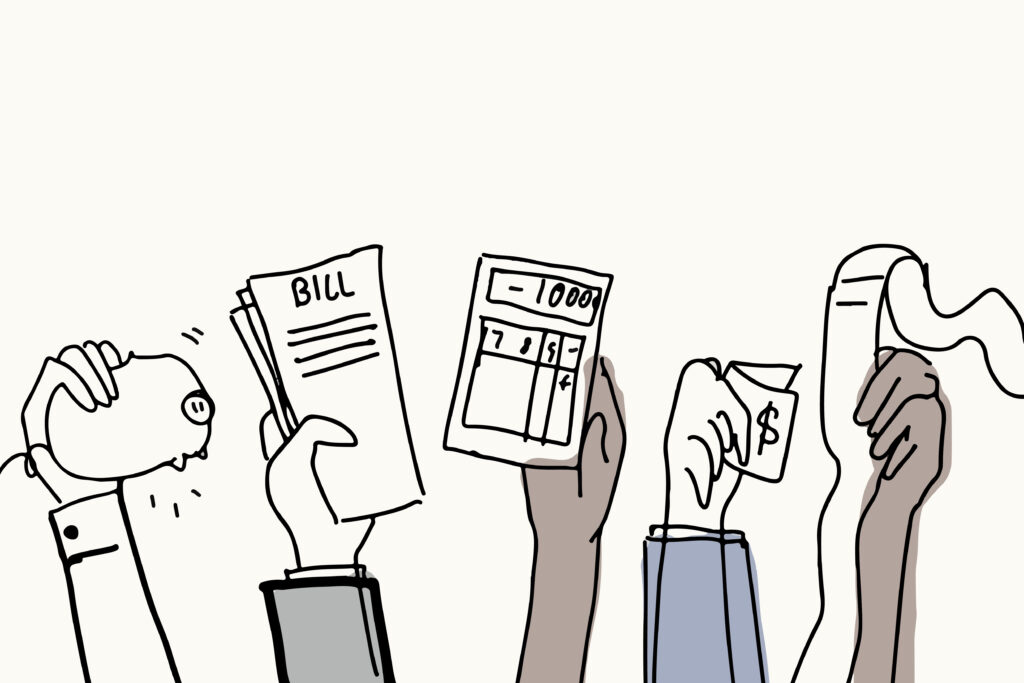Four ways to ensure you’re making the most of your Pay Cheque

We all know how important it is to stay on top of our finances, but with bills to pay, expenses to juggle, and a future to plan for, it often feels like our paycheque disappears as quickly as it arrives. The good news is, there are practical and achievable strategies that can help you make the most of your paycheque. In this post, we’ll explore four effective methods to optimise your money, empowering you to take control of your finances and achieve your long-term goals.
Use the 50/30/20 rule
It’s no secret that budgeting is the foundation of financial success. There are plenty of tools and techniques you might employ to help you budget effectively; one of the most common methods is the 50/30/20 rule. This approach dictates that you allocate 50% of your income to your needs: mortgage payments, groceries, bills and commuting costs. 30% is reserved for wants – this accounts for all non-essential spending like subscriptions, eating out, hobbies or holidays. The remaining 20% is allocated to your savings pot – make sure you shop around to find the best interest rates when setting up a savings account.
As well as a main savings pot, it’s always advisable to try and build an emergency fund in case any unexpected expenses crop up. You don’t have to follow this structure exactly but using it as a rough guide could help you to apportion your paycheque more effectively and leave you in a healthier position each month.
Make use of company benefits
Beyond your basic salary, companies offer additional perks and benefits to their employees to retain the best talent and support wellbeing. Whether you have access to free or discounted services, knowing the full range of benefits can help your money go further each month. Some are mandatory – like pension contribution and holiday pay – and others are discretionary. Common corporate benefits that could support your financial wellbeing include:
- Discounted gym membership
- Free dental care
- Health insurance
- Mental health support
- Pension contribution
- Retail discounts
- Paid training and development
- Work from home budget
Every company will have their own unique benefits package, so take the time to fully get to grips with what’s being offered. Naturally, not every benefit will be relevant to you, but failing to make use of the ones that are means you’ll be missing out on the opportunity to get more from your paycheque.
Be proactive on payday
Being proactive with your money, rather than reactive, can help you to feel more in control of your finances. Having the money simply sit in your account could mean you’re more prone to impulse buying or emotional spending, which can have a huge impact on your financial wellbeing over time. This is especially true when a lump sum enters your account in one go.
Be sure to set your priorities for the month and allocate your finances accordingly. Some banking apps even allow you to automatically sort your money into different pots at the click of a button; make use of similar tools and features offered by your bank to make money management easier. As well as helping to hold yourself accountable, being proactive on payday means you can get more from your paycheque, since you can start earning interest in any savings accounts sooner.
Reduce unnecessary expenses
Spending more on things than you need to or paying for goods and services you don’t use will quickly eat into your paycheque and leave you with less wiggle room across the month. It’s important to take the time to carefully review your regular spending habits and look for ways you can cut back.
This generally starts by looking at spending in the ‘wants’ category. Whether it’s subscriptions you no longer make use of or expensive shopping habits you could easily go without, the savings can soon add up. For instance, one report found that 78% of people have reduced spending on eating out in 2024, while 70% have cut back on ordering takeaways.
You’ll also often be able to find ways to reduce expenses in the ‘needs’ category. For example, shopping around for the best deals on insurance, phone contracts and utilities can help your money to go further. With a little bit of investigating, you may be surprised at just how much you could save.
